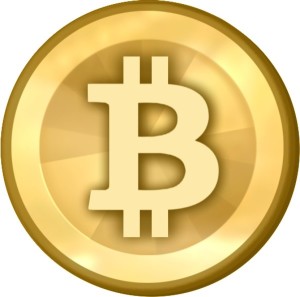 Bitcoin scored several big wins this week, including endorsements from U.S. federal officials and Virgin Group founder Richard Branson, signalling its progress toward wider acceptance.
Bitcoin scored several big wins this week, including endorsements from U.S. federal officials and Virgin Group founder Richard Branson, signalling its progress toward wider acceptance.
Bitcoin has battled concerns about volatility, criminal use and potential government crackdowns, but people continue to invest in the virtual currency. It may still be a way from mass market acceptance, but developments over the past few days show it gaining support beyond enthusiasts, Libertarians and black market traders.
On Monday, federal officials including the acting assistant attorney general at the Department of Justice argued that Bitcoin could benefit the financial system and global commerce more broadly. But the anonymous nature of the currency, which makes it attractive for black market transactions, must be watched, they said.
Some see Bitcoin more as an investment – if a potentially risky one – than a legal tender. On Friday a bitcoin was worth more than US$800 on the Mt. Gox exchange, up from just $30 earlier this year. Bitcoin is managed and traded on a peer-to-peer network and is meant to be free of regulation by any central financial authority.
The recent positive attention Bitcoin has received increases its legitimacy and means more people now see it as a real currency, said Jordan McKee, an analyst with the Yankee Group, who has been tracking Bitcoin’s evolution.
Take British billionaire Richard Branson. The Virgin Group founder’s space travel startup Virgin Galactic will start accepting payments in bitcoins, Branson announced Friday, a currency he referred to as “one of the world’s most innovative businesses looking to the future.”
“For people who can afford to invest a little in bitcoins, it’s worth looking into,” said Branson, an investor in the currency himself.
There’s also a documentary in the works about Bitcoin and the “deep web,” by “Bill & Ted’s Excellent Adventure” actor Alex Winter. “Guns, drugs and murder, and a new global currency created by hackers that exist outside the control of government and banks,” Winter says of the movie on his Kickstarterpage.
Bitcoin will even have a role during the U.S.’ post-Thanksgiving shopping orgy known as Black Friday, making it part of American consumerism at its best. Through an event organised by the Bitcoin community, a hodgepodge of online merchants like CheapAir, Gyft and Mixed Tees are participating in the shopping extravaganza by giving exclusive deals to shoppers if they pay in bitcoins.
All this traction is great for Bitcoin, but it still has a way to go before it becomes mainstream. The ways people pay for goods now are pretty well entrenched, Yankee’s McKee said.
“Nearly every form of electronic payment rides the rails the [credit] card networks have forged,” he said, adding, “it’s unlikely anything will circumvent this system anytime soon.”
It’s a wonder Bitcoin is still around at all, after a series of shutdowns of exchanges, account seizures and massive selloffs. Tokyo-based Mt. Gox, one of the largest exchanges, temporarily shut down in April after a huge drop in the currency’s price.
Some groups have still not got back on their feet. Tradehill, another large Bitcoin exchange, said in August that it would be suspending its trading, citing banking and regulatory issues. Trading has not been resumed, judging by its website.
Still, the number of stores accepting the virtual currency continues to rise. Bitpay, which provides a service that makes it easier for merchants to get paid in bitcoins, says it’s now used by 12,000 merchants worldwide.





